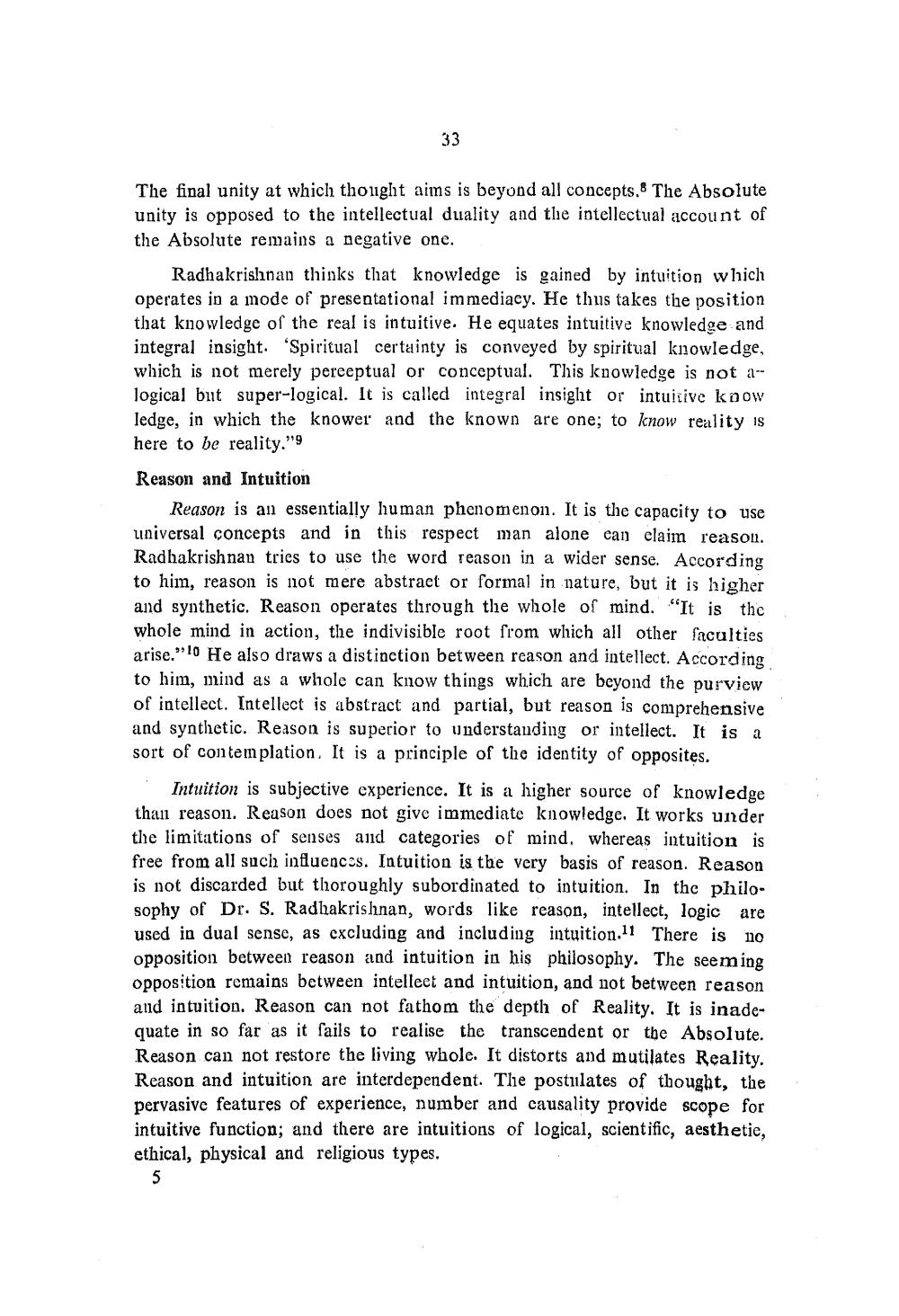________________
33
The final unity at which thought aims is beyond all concepts. The Absolute unity is opposed to the intellectual duality and the intellectual account of the Absolute remains a negative one.
Radhakrishnan thinks that knowledge is gained by intuition which operates in a mode of presentational immediacy. He thus takes the position that knowledge of the real is intuitive. He equates intuitive knowledge and integral insight. 'Spiritual certainty is conveyed by spiritual knowledge, which is not merely pereeptual or conceptual. This knowledge is not alogical but super-logical. It is called integral insight or intuitive koow ledge, in which the knower and the known are one; to know reality is here to be reality."9 Reason and Intuition
Reason is an essentially human phenomenon. It is the capacity to use universal concepts and in this respect man alone can claim reason. Radhakrishnan tries to use the word reason in a wider sense. According to him, reason is not mere abstraet or formal in nature, but it is higher and synthetic. Reason operates through the whole of mind. "It is the whole mind in action, the indivisible root from which all other faculties arise.”:10 He also draws a distinction between reason and intellect. According to him, mind as a whole can know things which are beyond the purview of intellect. Intellect is abstract and partial, but reason is comprehensive and synthetic. Reason is superior to understanding or intellect. It is a sort of contemplation. It is a principle of the identity of opposites.
Intuition is subjective experience. It is a higher source of knowledge than reason. Reason does not give immediate knowledge. It works under the limitations of senses and categories of mind, whereas intuition is free from all such influences. Intuition is the very basis of reason. Reason is not discarded but thoroughly subordinated to intuition. In the philosophy of Dr. S. Radhakrishnan, words like reason, intellect, logic are used in dual sense, as excluding and including intuition 11 There is no opposition between reason and intuition in his philosophy. The seeming opposition remains between intelleet and intuition, and not between reason and intuition. Reason can not fathom the depth of Reality. It is inadequate in so far as it fails to realise the transcendent or the Absolute. Reason can not restore the living whole. It distorts and mutilates Reality. Reason and intuition are interdependent. The postulates of thought, the pervasive features of experience, number and causality provide scope for intuitive function; and there are intuitions of logical, scientific, aesthetie, ethical, physical and religious types.




